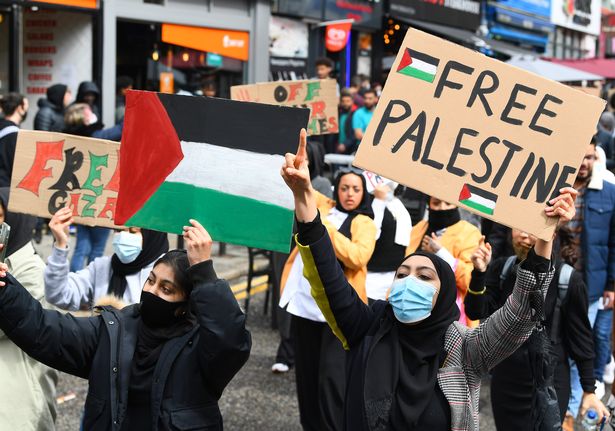Palestinian prisoners have again taken to protest against their abuse by Israeli prison authorities, threatening mass hunger strike if their demands go unmet.
Prisoners have launched weeks of demonstrations and non-compliance in response to a series of suppressive measures, that include solitary confinement and forced searches.
Since last autumn, the widespread abuse of Palestinians in prisons has escalated through a series of new punitive measures. Yard time, prisoners’ only chance for fresh air, has been reduced to as little as an hour a day, while access to prison canteen areas has been removed. Many inmates have had their visitation privileges revoked, and the separation of politically aligned prisoners is not uncommon.
The recent worsening of conditions can be seen as a reaction to such events as last September’s Gilboa prison break, in which six Palestinians escaped from jail. Though all six came to be recaptured, many other prisoners were beaten and tortured by guards in their absence.
As a response to the heightened abuse, past weeks have seen prisoners partake in yard sit-ins, and refusing to comply with security checks. Many inmates suffering ill-health have chosen to boycott prison clinics, refusing medication or to attend health checks.
Following a session between the Supreme National Emergency Committee for Prisoners, Palestinian Prisoners Society, and other prisoners groups, the announcement was made that a mass hunger strike would begin on March 25th. This is unless prison authorities end their abuses of Palestinian prisoners: returning yard times to multiple hours, ensuring visitation privileges, ending the forced searches and use of solitary confinement.
Previous strikes have occurred, with a 2019 hunger strike of over 400 prisoners. In that particular case, Israeli authorities conceded to the demands of improved prison conditions, more family visits, and public telephones.
One of the key ways in which Israel has targeted Palestinians is the use of administrative detentions. These allow individuals to be detained without trial indefinitely, on the basis of ‘secret evidence’ that they pose a threat. This evidence need not be shown to the target, nor lawyers.
As it stands there have been over 8,700 detention orders sent against Palestinians since 2015. Five hundred Palestinians are currently detained, and since January 1st this year, all 500 are boycotting the Israeli military courts in protest.
One such detainee is Amal Nakhleh, who was arrested in January 2021 at only 17 years old, and has now been detained for over a year. This is despite the fact that Amal suffers myasthenia gravis, an uncommon neuromuscular disease requiring regular medication and constant monitoring of symptoms.
Concern for Amal’s situation was highlighted in a February 2021 communique to the Israeli government, co-written by three UN Special Rapporteurs and the vice-chair of the Working Group on Arbitrary Detention.
The authors called into question the place of administrative detention under international law, citing the right “not to be deprived arbitrarily of liberty and to fair proceedings before an independent and impartial tribunal, in accordance with articles 9 and 10 of the Universal Declaration of Human Rights, and articles 9 and 14 of the International Covenant on Civil and Political Rights (ICCPR).”
This in addition to the Mandela Rules: “which recognize the responsibility of States to provide health care for prisoners, free of charge without discrimination (Rule 24).”
That anyone, never mind a child, can be left detained for over a year on the basis that there is some ‘secret’ evidence somewhere that proves them a security threat, is nothing short of cruelty. Amal, and the other 499 Palestinian detainees are not there because they pose a legitimate threat to the Israeli state, but simply for the fact that they are Palestinians.
Philip English, is a member of the YCL’s Birmingham branch



